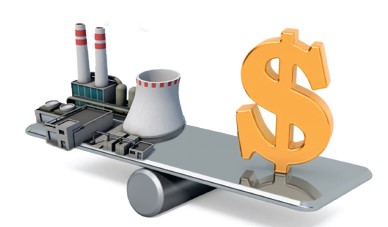India, as a nuclear power, has expressed its intention to maximise the use of nuclear energy for commercial applications. India has been using nuclear energy for commercial purposes for
several decades.
India has 22 nuclear reactors in operation, spread across seven nuclear power plants. At first glance, nuclear energy accounts for only about 3% of India’s total electricity generation. However, India has ambitious plans to increase this share to 25% by 2050.
In recent years, India has forged new alliances in the nuclear energy sector. One important development is the country’s partnership with the International Atomic Energy Agency (IAEA), which has given India access to nuclear technology and expertise. The IAEA has assisted India in developing its nuclear energy programme, and the partnership has been beneficial in providing technical support and training to Indian nuclear scientists and engineers.
In addition to its partnership with the IAEA, India has signed agreements with several countries to expand its nuclear energy programme. For example, India has signed a civil nuclear cooperation agreement with Japan that paves the way for Japanese companies to participate in the construction of nuclear power plants in India. Similarly, India has signed a memorandum of understanding with the United Kingdom to enhance cooperation in the field of civil nuclear energy, including research and development, training, and cooperation on safety issues.
Another important development is India’s partnership with Russia. Russia has been a longstanding partner of India in the field of nuclear energy, and the two countries have signed several
agreements over the years. Recently, India and Russia signed an agreement to build six nuclear power plants in India that will be based on Russian technology. This agreement is of great importance
as it will help India expand its nuclear energy programme and meet its growing energy needs.
Finally, India has been working to develop its nuclear technology, including the Advanced Heavy Water Reactor (AHWR) and the Advanced Thorium-based Nuclear Reactor (AHNR). These technologies are expected to be safer, more efficient, and more environmentally friendly than existing nuclear technologies. India is also working to develop small modular reactors (SMRs), which are expected to be less expensive and more flexible than conventional nuclear power plants. India is also working to develop nuclear technologies that are expected to be safer, more efficient, and less expensive than existing technologies. These developments are important because they will help India meet its growing energy needs and reduce its dependence on fossil fuels.
The Nuclear Power Corporation of India Limited (NPCIL) is the agency responsible for operating India’s nuclear power plants. India’s nuclear programme primarily uses pressurised water reactors (PHWRs) and fast breeder reactors (FBRs). In addition, India plans to expand the use of light water reactors (LWRs).
Despite India’s commitment to nuclear energy, its nuclear programme faces several challenges. One major issue is safety. In recent years, its nuclear programme has been criticised for safety
regulations and potential environmental hazards. Environmental groups and residents living near nuclear power plants have raised concerns about the health risks associated with nuclear energy.
Another major challenge facing India’s nuclear programme is liability. The Indian government is seeking better liability protection for nuclear plant operators, but this is a contentious issue. Concerns have been raised about the potential cost of a nuclear accident and who would be responsible for paying damages.
Finally, financing India’s nuclear programme remains a major challenge. Building and operating nuclear power plants can be expensive, and India’s nuclear programme has faced funding shortfalls in
the past. These funding shortfalls have led to delays in the construction of new nuclear power plants.
In summary, India’s nuclear programme has been using nuclear energy for commercial purposes for several decades. However, several challenges need to be addressed, including safety concerns, liability issues, and financing problems. Despite these challenges, India remains committed to expanding the use of nuclear energy to meet its growing energy needs.






